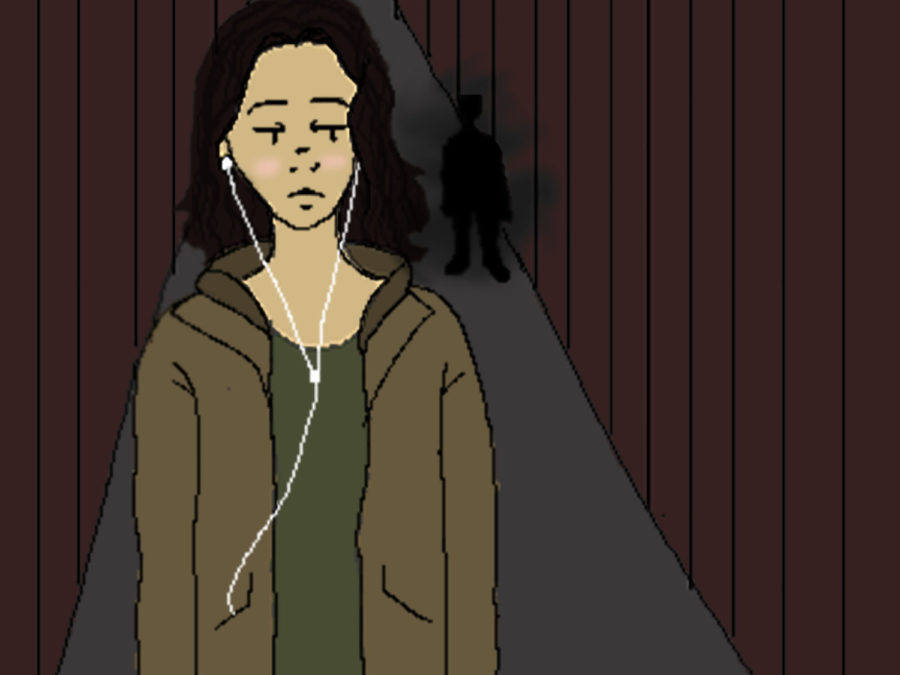OPNION: Red flags waving high
Romance movies normalize abusive behavior, leave negative impact on viewers
Romance movies. Cheesy one liners. Questionable love interests. For years, I’ve never seen the appeal of them. Instead, I’ve found them downright damaging. Many of these movies portray abusive behavior as flirty and romantic, from the dismissal of bad behavior to the romanticization of abuse.
Twilight is one of the most well known romance movies of this generation. It depicts the story of Bella, a human torn between choosing to love a vampire or a werewolf. It’s troubling how much red flag behavior is prevalent in it. The vampire, Edward, is depicted as a picturesque boyfriend: Bella’s knight in shining armor. In reality, Edward exhibits many alarming traits, the most notable being overprotectiveness.
Edward designates himself as Bella’s bodyguard, unbeknownst to her. He stalks her in the name of “making sure she’s safe.” Even if it is a sweet sentiment, he doesn’t have the right to decide what’s best for her, only she does. For example, in the first movie after he saves her from a group of guys, he tells her that he just feels the need to be protective over her. He’s not giving her the choice to say no; he’s already decided it’s what’s best for her.
Viewing someone as an object with which you get to do what you please isn’t love. It shouldn’t be viewed as just a part of the dating experience, yet this movie normalizes such behavior. The feeling of wanting to protect someone can turn into controlling behavior.
The feeling isn’t the problem, it’s how the characters respond to it. The characters always act on the feeling by asking their love interest to do things to ease their mind, such as telling them who they can talk to or how late they can stay out.
The Kissing Booth is the story of Elle denying her feelings for her childhood best friend’s brother, Noah. This movie is wildly problematic, incredibly unfunny, and another great example of a big budget movie with numerous red flags. The worst scene in the movie is when Noah tries to control Elle yet again. An argument escalates to the point where Noah slams his hand on his car and yells at her to get in. Then, when he recognizes how his words affect her, he lowers his voice and calmly asks her to get in the car.
This red flag is called Dr. Jekyll & Mr. Hyde. Noah was violent. His hand slamming on the car hood was letting Elle know how strong he is. Then, instead of apologizing he just repeated his demand in a softer tone. In real life, the violent behavior could escalate if you stayed in a relationship like this. Instead of a car hood getting hit, it could be you on the receiving end of the abuse.
Even Disney movies aren’t immune to this, with a prime example being Beauty and the Beast. A Disney classic filled with magic and a questionable prince. The Beast controls Belle. He makes her do things she doesn’t want to do and even refuses to let her eat. It’s beyond disturbing how easily you can sweep awful behavior under the rug if you package it up with a pretty bow and call it a day.
Easily, the criticism could be brushed away by saying “Oh, It’s just a kids’ movie.” However, that is exactly why it’s so bad. The normalization of abusive relationships has been drilled into our heads since childhood. I grew up thinking that was love, and so did millions of other kids.
Truly, I am sick and tired of seeing movies romanticize such horrible actions. The romance genre is now infested with awful movies about sad, troubled, bad boy characters who abuse their lovers and the people around them, and we’re expected to be okay with it.
Abuse is abhorrent. It’s extremely difficult and dangerous to get out of an abusive relationship, and movies like these don’t make it any easier. People stuck in a bad relationship can look at these movies and use them as evidence that they aren’t being abused.
This needs to stop in order to prevent kids from drawing false conclusions about what healthy relationships entail, to stop victims of abuse from possibly dismissing abusive behavior, and to stop normalizing abusive relationships.































